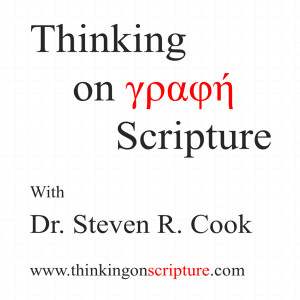
Saturday Jul 06, 2019
Jonah 3:1-10
After Jonah’s humbling experience in the stomach of the great fish (Jon 2:1-9), and being vomited onto the onto the dry land (Jon 2:10), God recommissioned His recalcitrant prophet to deliver a message to the Ninevites (Jon 3:1), saying, “Arise, go to Nineveh the great city and proclaim to it the proclamation which I am going to tell you” (Jon 3:2). Jonah is obedient to God, “So Jonah arose and went to Nineveh according to the word of the LORD” (Jon 3:3a). It is likely Jonah obeyed the Lord more from a fear of punishment than from a heart of compassion. Nineveh was located 550 miles from Samaria, the capital of Israel, and it would have taken Jonah nearly a month to get there, assuming he was dropped near there and traveled 20 miles per day. Once he arrived, it took him three days to walk through the city, delivering his message as he went. The population of Nineveh was at least 120,000 (see Jon 4:11); however, the number of residents could rise to over half a million, if the 120,000 refers only to children. Whatever the number, God cared about these people enough to send His prophet as an ambassador to warm them of His pending judgment. Jonah’s message was simple, as he cried out, “Yet forty days and Nineveh will be overthrown” (Jon 3:4b). The message included an element of time, people, and divine action. The time was forty days, the people were the Ninevites, and the action was divine destruction (because of their wickedness and violence). It’s possible Jonah’s punishment by God served as a sign to the Ninevites that God was to be taken seriously. Luke tells us, “Jonah became a sign to the Ninevites” (Luke 11:30). This could imply either they knew about God’s judgment against Jonah because of his disobedience, or they saw Jonah with the physical marks of his discipline. Either way, they were moved to believe his message, as the text informs us, “Then the people of Nineveh believed in God; and they called a fast and put on sackcloth from the greatest to the least of them” (Jon 3:5). Here is simple faith in action, as they believed in God. They took the message of judgment seriously, and correctly reasoned that forty days were given as a probationary period in which they could reform their behavior and perhaps avoid God’s wrath. The act of fasting and wearing sackcloth were outward signs of inward affliction that reflected a humble heart. As the residents of the city fasted, word traveled up to the king himself, who “arose from his throne, laid aside his robe from him, [and] covered himself with sackcloth and sat on the ashes” (Jon 3:6). The king then formalized the fast with a decree that encompassed everyone in the kingdom and forbade eating food or drinking water (Jon 3:7). The lack of water would have limited the fast to three days. During the time of fasting, he commanded them, saying, “let men call on God earnestly that each may turn from his wicked way and from the violence which is in his hands” (Jon 3:8). The word “violence” (חָמָס chamas) refers to evil-violence committed against the innocent and undeserving. This is consistent with what we know about the Assyrians, who were known for their great cruelty to those whom they’d conquered, not showing mercy to the poor, helpless or widows. The king acknowledged their sinfulness and reasoned that since God had not brought judgment already, that there was opportunity to turn from their violent ways and avoid it, stating, “Who knows, God may turn and relent and withdraw His burning anger so that we will not perish” (Jon 3:9). And we learn that God did spare them from His judgment, for “When God saw their deeds, that they turned from their wicked way, then God relented concerning the calamity which He had declared He would bring upon them. And He did not do it.” (Jon 3:10). In the Bible, some of God’s pronouncements of judgment were conditional. That is, He would show mercy and spare them judgment if they changed their ways. However, there were times when God’s judgment was certain, and no amount of reform could stop it. God is slow to anger (Exo 34:6; Num 14:18; Psa 86:15; Jon 4:2), which refers to His great patience, but His patience does not go on forever, and eventually He brings judgment upon the arrogant who refuse to humble themselves. The Assyrians eventually returned to their evil practices and destroyed Israel nearly 37 years later in 722 B.C. This shows that the repentance of one generation is merely the repentance of one generation, and that believing and humble parents does not guarantee believing and humble children. Eventually, God would destroy the Assyrians in 612 B.C.
No comments yet. Be the first to say something!